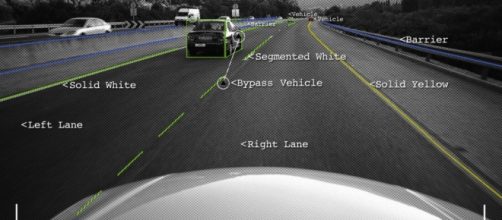IBM recently announced their purchase of Mobileye, a Jerusalem-based tech firm, which employs about 660 people, at $63.54 per share. Intel said that the amount would be paid in cash. On the day of the announcement, Mobileye closed at $60.62 (up 28 percent), while Intel stock dropped about 2 percent. The deal is expected to close within the next few months, subject to the approvals of regulatory agencies. Experts predict that the new acquisition should help to boost Intel’s revenue as soon as it comes through, as Mobileye is already a leading supplier of automobile sensing technology to carmakers across the globe.
Mobileye is already an established force in autonomous sensing technology
Before the announcement, Mobileye has already been working together with Intel and BMW developing technology for fully and semi-autonomous vehicles. Since the company’s founding in 1999, Mobileye has established themselves as a leader in collision prevention sensors. These sensors alert drivers if they are approaching another car too quickly or of any objects in the way, including pedestrians. Artificial vision sensors are placed around the car’s exterior, which Mobileye says act as the driver’s “third eye.”
Mobileye creates technology that helps cars perform tasks like navigating on and off ramps independently to passing other vehicles without driver input.
As of now, over than 10 million vehicles across the globe are equipped with Mobileye technology. The company has offices in the US, Germany, Japan, and China.
According to Brian Krzanich, Intel’s CEO, together, the two companies will be leaders the field of Autonomous Driving.
Self-driving cars are coming
IBM isn’t the only tech company interested in self-driving cars.
Many companies including Google, Apple, and ride-sharing pioneer Uber (who last year bought an autonomous truck company) have been investing heavily in the auto industry, and more specifically, in autonomous vehicle development.
Based on recent trends in both the auto industry and in governments that legislate driving regulations, autonomous driving appears to be the path of the future.
Almost every major carmaker to date offers some form of autonomous technology for their vehicles, and it has become almost necessary for cars to have them in order to receive a top safety rating from either the NTHSA or the IIHS. Of late, a number of leading manufacturers have unveiled wholly or partly autonomous concept cars, and many say that they expect them to make it to production in some form, perhaps sooner than people expect.
There are even plans for a sanctioned autonomous racing series, which, if it comes to fruition, will initially act as a support series to Formula E, an all-electric racing series that has recently begun to gain popularity.

